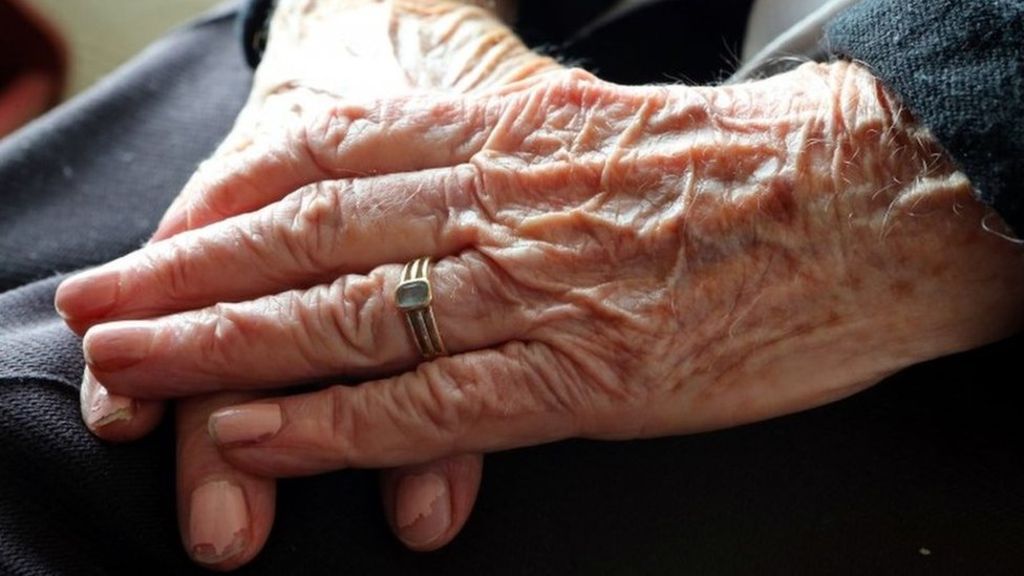Social care: Sajid Javid sets out new measures – BBC News

 Image copyright Science Photo Library
Image copyright Science Photo Library The government has set out new measures aimed at boosting funding for social care in England.
Local authorities have been told they can bring forward council tax rises to cover costs over the next two years.
Communities Secretary Sajid Javid also told MPs 240m cut from the New Homes Bonus, which compensates councils for building new homes, would be spent on adult social care next year.
Labour said no new money was being offered to tackle the “crisis”.
Mr Javid unveiled the measures as he set out the local government finance settlement in the Commons.
Campaigners have been calling for investment to be brought forward to tackle what they say is a funding crisis in services for the elderly and disabled.
- Reality Check: Is social care getting more money?
- Laura Kuenssberg: How can social care be funded?
- Care: The alternative options
- How the care system works across the UK
On Wednesday, it emerged the government would offer councils an increase in the extra council tax they can impose to cover social care costs.
This was confirmed by Mr Javid, who said local authorities would be permitted to increase council tax by up to 6% over two years, ringfenced for social care, with a maximum of 3% each year.
The 6% previously had to be spread over three years. A 1% increase would raise an estimated 200m.
Mr Javid said the measure, when added to the 240m taken from the New Homes Bonus, would mean 900m extra for local authorities over the next two years to fund social care services.
Responding to Mr Javid, shadow communities and local government minister Gareth Thomas said the local government settlement would “leave people paying high taxes for worse public services”.
He urged the government to reconsider a planned corporation tax cut to plug the social care funding gap.
Labour has said increasing council tax for social care – which raised an extra 383m this year – is flawed because areas of high deprivation, among those with the greatest demand for social care, have lower property values and council tax incomes.
Find out the cost of care in your area






Home care

What is home care?
You stay in your own home while getting help with everyday tasks such as washing, dressing and eating.
How your council helps with care
EXPLAINER TITLE
average amount of care provided per week, by your council
![]()
average paid per hour by your council, 2014-15
![]()
average paid per hour in your region if you pay for your own care, 2016
Residential care

What is residential care?
You live in a care home that provides round-the-clock support with everyday tasks.
How your council helps with care
Average contribution per week
Paying for yourself
TBC pay for their own care



Nursing home care

What is nursing home care?
You live in a care home which provides round-the-clock support for everyday tasks and nursing care. Depending on your medical needs, the NHS may contribute to your costs.
How your council helps with care
Average contribution per week
Paying for yourself
TBC pay for their own care



Who gets help?

How is your contribution decided?
Your home

Savings, investments and income are assessed, along with the value of your home – unless you or a close relative live there.
Will I have anything left?
Want to know more?

The future of care
Useful links
 Image copyright House of Commons
Image copyright House of Commons But the government says it is investing in social care through its Better Care Fund, as well as taking steps to more closely integrate health and social care provision.
Council tax accounts for only about half of local authority income – the rest coming from central grants, which are being cut, and business rates, which are volatile – so it is unclear by how much care budgets will rise.
The Local Government Association says it is committed to reducing delays in discharging patients from hospitals and allowing people to be looked after at home but warned the system is at “breaking point” due to budget cuts.
The numbers of elderly people going without care, paying for it themselves or relying on family and friends currently outstrip those getting council help by four to one.
The head of the NHS in England has suggested free bus passes and pension benefits for older people may have to be reconsidered to address the problems facing social care.
Appearing before MPs on Thursday, Simon Stevens said a sweeping new “social contract” was needed setting out the “full range of services and needs that people have in retirement”, predicated on the right for people to receive care in their homes.
“There is no point in saying to our parents ‘yes you’ve got a free bus pass if you’re not able to leave the house because you don’t have the availability of a home help,” he said.